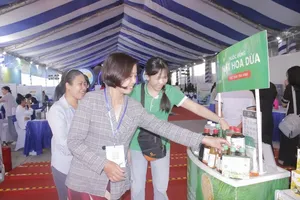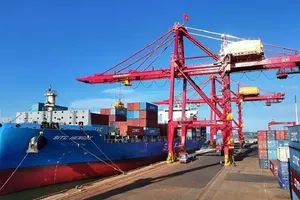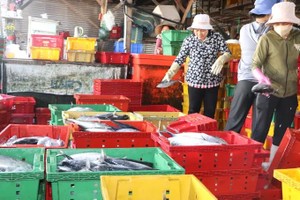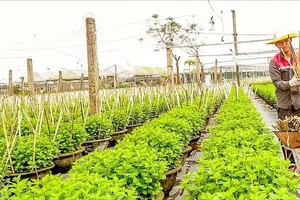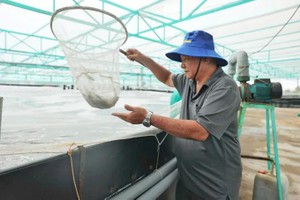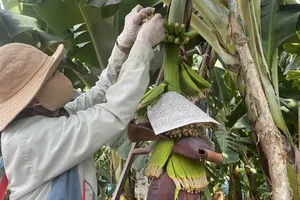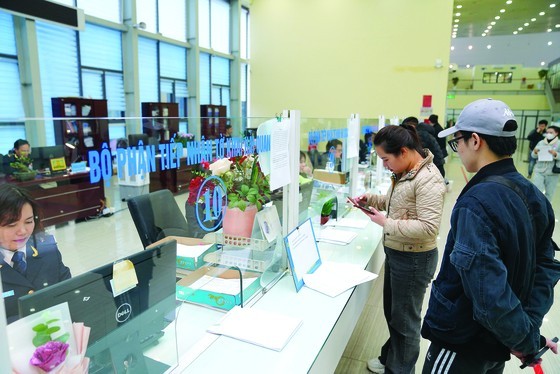 |
Traders at Huu Nghi border gate |
According to Ms. Le Hang, Communications Director of the Vietnam Association of Seafood Exporters and Producers (VASEP), the number of seafood orders to China will increase sharply after opening due to the removal of regulations for frozen goods in China. Mr. Le Ba Anh from the General Directorate of Fisheries said that China is a market with great demand for Vietnamese seafood.
After China opened the border, seafood products will be more favorable for export, especially fresh seafood such as lobster, white shrimp, and crab because restaurants in China will consume a large amount of fresh seafood, said Mr. Ba Anh.
According to a representative of the General Directorate of Fisheries, China has now recognized 802 Vietnamese seafood export enterprises that are eligible for official export to this country. At the same time, Vietnam also approved 780 Chinese seafood enterprises to enter Vietnam. Since 2004, Vietnam has signed a seafood export cooperation agreement with China.
For fruit products, Mr. Huynh Tan Dat, Deputy Director of the Plant Protection Department under the Ministry of Agriculture and Rural Development, said that the department has directed the units to quarantine and control food safety at the border gate as well as arrange personnel to support enterprises in carrying out export procedures as quickly as possible.
Recently, Vietnam and China have signed a series of protocols on the export of many fruits and agricultural products through official channels such as sweet potatoes, durians, dragon fruit, bananas, and passion fruit.
For key agricultural products, the Plant Protection Department has built a database of growing areas and packing facilities, crops, and productivity to regulate material areas with the aim to avoid congestion at border gates.
Statistics show that in the first half of 2022, Vietnam's fruit and vegetable exports to China only reached US$1.4 billion, down 21.7 percent compared to the same period in 2021. But in the last months of the year, when the strict control measures at border gates were gradually loosened, fruit and vegetable exports to China increased by more than 40 percent over the same period last year, bringing the total export turnover of Vietnam's vegetables and fruits in 2022 to nearly $3.4 billion.
A representative of the Plant Protection Department predicted that fruit and vegetable exports to China will boom again in 2023.
Meanwhile, Mr. Nguyen Van Long, Director of the Department of Animal Health under the Ministry of Agriculture and Rural Development disclosed that nine factories that have so far met the standards for export to China saw an increased growth of up to 50 percent. In November 2022, Vietnam also signed a protocol to export bird's nests to China. The Ministry of Agriculture and Rural Development has issued an instruction on the export of bird nests and the sector strived to have the first shipments of bird nests into China this year.
Mr. Long also said that the department has coordinated with competent agencies to build a foot-and-mouth disease-free zone. The Ministry of Agriculture and Rural Development is negotiating to export more chicken, and processed products to the Chinese market, opening up new markets for Vietnamese livestock products.
Nevertheless, in addition to advantages and opportunities, experts still warned of challenges including the risk of a re-epidemic outbreak after China reopened its borders. According to the Ministry of Industry and Trade, the number of vehicles transporting goods to the northern border gates will increase before the Lunar New Year. Therefore, the ministry suggested that businesses and localities, especially agricultural production areas focus on exporting to the Chinese market. Responsible agencies need to actively update information on the clearance of goods at border gates as well as closely cooperate with northern provinces at border gates to coordinate the flow of exported goods.
According to Dang Phuc Nguyen, General Secretary of the Vietnam Fruit and Vegetable Association, businesses need to strictly prevent and detect the SARS-CoV-2 virus and ensure food safety before exporting to China because if China detected the SARS-CoV-2 virus in products, Chinese authorities will ban export. Moreover, enterprises need to carry out official export, to avoid breaking contracts and resulting in losses.
In addition, businesses need to improve quality and learn market information before exporting, especially manufacturing according to orders.
Mr. Duong Nghia Quoc, Chairman of the Vietnam Pangasius Association, said that at present, China has set criteria and technical barriers that are as same as that of European countries. Therefore, enterprises in addition to quality assurance production need to improve product quality and ensure food safety.
From January 8, China implemented the management of Covid-19 under the category B infectious disease. This country also abolished some regulations including stopping testing chilled, frozen foods for Covid from Jan. 8.


